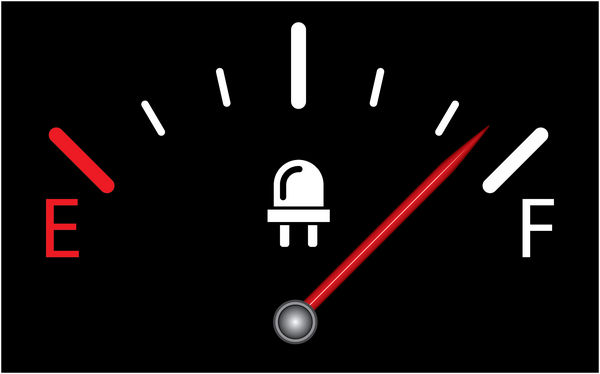Balazs Torok, Petrol Station Key Account Manager at GE Lighting EMEA, shares some of his insights on how to brighten up petrol stations with proper lighting.
Commuting is on the rise. More and more people are living outside of the cities in which they work. Traffic jams are the norm. The recent reductions in oil prices and the limitations of public transport mean that the car is increasingly attractive as an option. For petrol stations, surely this is good news?
Well not necessarily. As the number of motorists increases so does the competition to win those potential customers. But when prices are similar, how can a petrol station stand out from the competition? How does a driver choose between petrol station ‘A’ or ‘B’?
The factors involved in that decision have changed: visibility, brand loyalty, security and service are the new triggers that attract customers to petrol stations. And lighting has an impact on all four of them.
 |
|
(Photo Credit: GE Lighting) |
-
Visibility: This is the first and most obvious issue – poorly lit petrol stations are simply less noticeable. Especially away from urban areas, where they can be a beacon on unlit roads if they have the right lighting. LED provides high intensity with a very low consumption and maintenance, reducing the cost of keeping the station lit for so many hours.
-
Brand Loyalty: Once the attention of the motorist is captured, the next question is which brand to choose. While each driver will have their individual preferences, basic presentation and illumination can have a significant impact. LED lighting can greatly improve the appearance of totem pole branding as well as side canopy homogeneous illumination. If the totem pole illumination is poor or defective, drivers will psychologically link this to the quality of the station’s overall service.
-
Security: The next consideration is the main canopy lighting. The uniformity and brightness that LED lighting brings is a major advantage, particularly because drivers associate light with security. In the first place they allow drivers to react quickly in case of an unexpected event. Also, well-lit stations can help drivers feel safe and are more likely to discourage any criminal activity. What’s more, health and safety rules are very strict in petrol companies, which have to make mandatory annual accident reports, and anything that can reduce those numbers is welcome.
-
Service: Inside the station itself, the retail lighting plays a significant role as well. Oil companies have smaller margins on fuel sales because prices have fallen while operating costs have remained the same. The petrol station shop can help to fill this revenue gap. Did you know that on average, there are more than 6,000 different items for sale in a petrol station? It’s estimated that more than 95 percent of customers make spontaneous buying decisions while in front of the shelves in the shop.
For these reasons, in-store lighting is crucial in making up the margins. Customers will spend more time in the shop and are more likely to use its additional services if it is a friendly and warm environment. And they can also be guided towards higher margin products by directed or feature lighting.
Finally, the other method to increase revenue is to reduce operational costs. It’s estimated that 30 percent of utility costs in petrol stations is spent on lighting. Fuel companies can immediately reduce this energy cost by between 50 and 70 percent with the help of LEDs versus core technology. Imagine if only 10 percent of your utility costs was spent on lighting. Using LEDs can also help brand reputation with the reduction of CO2 emissions, further helping increase sales.
So, if you want to have the most complete offer, not only in fuel then lighting and LED technology can give your business added value.












